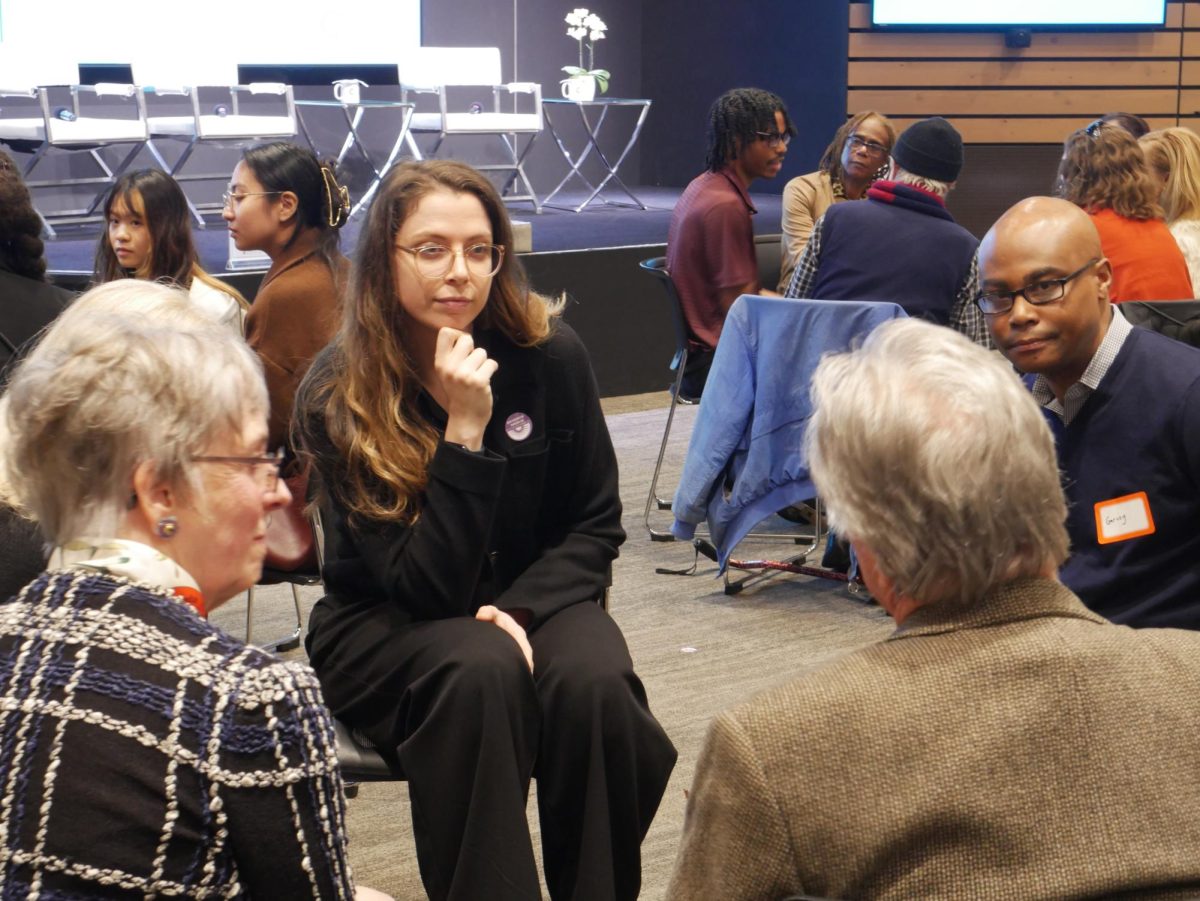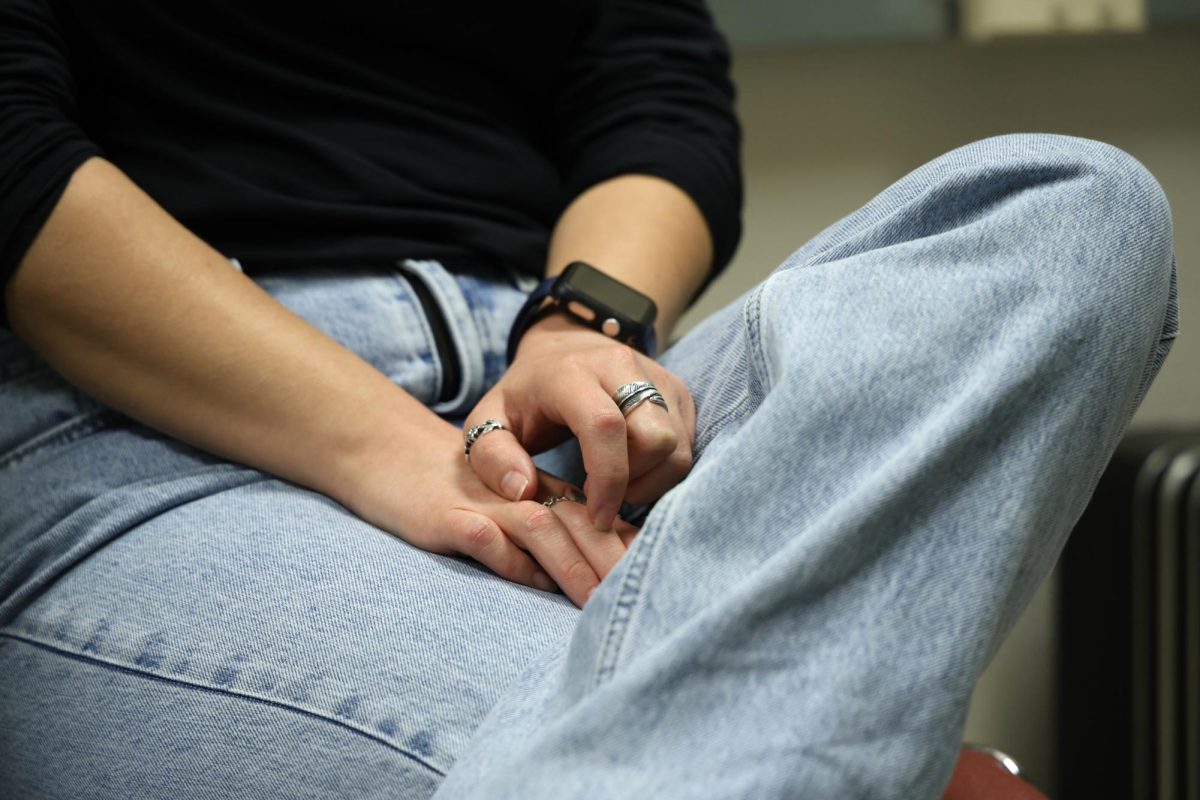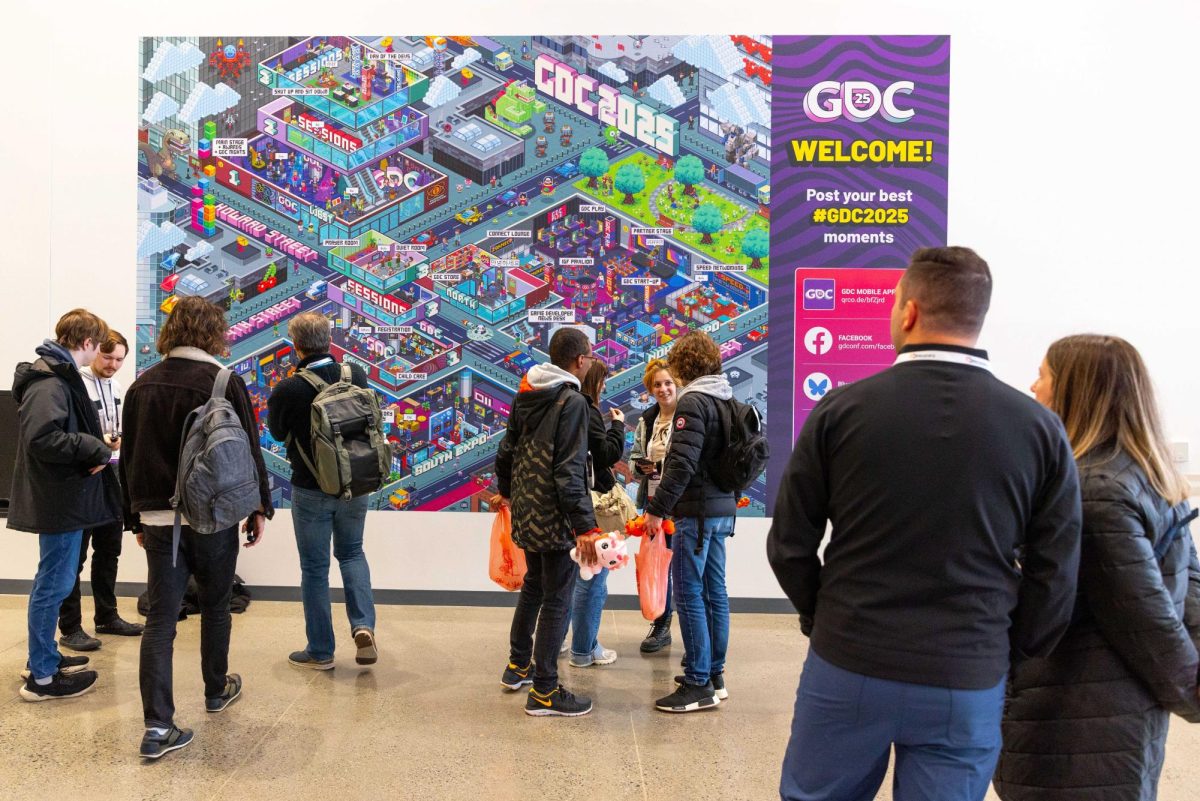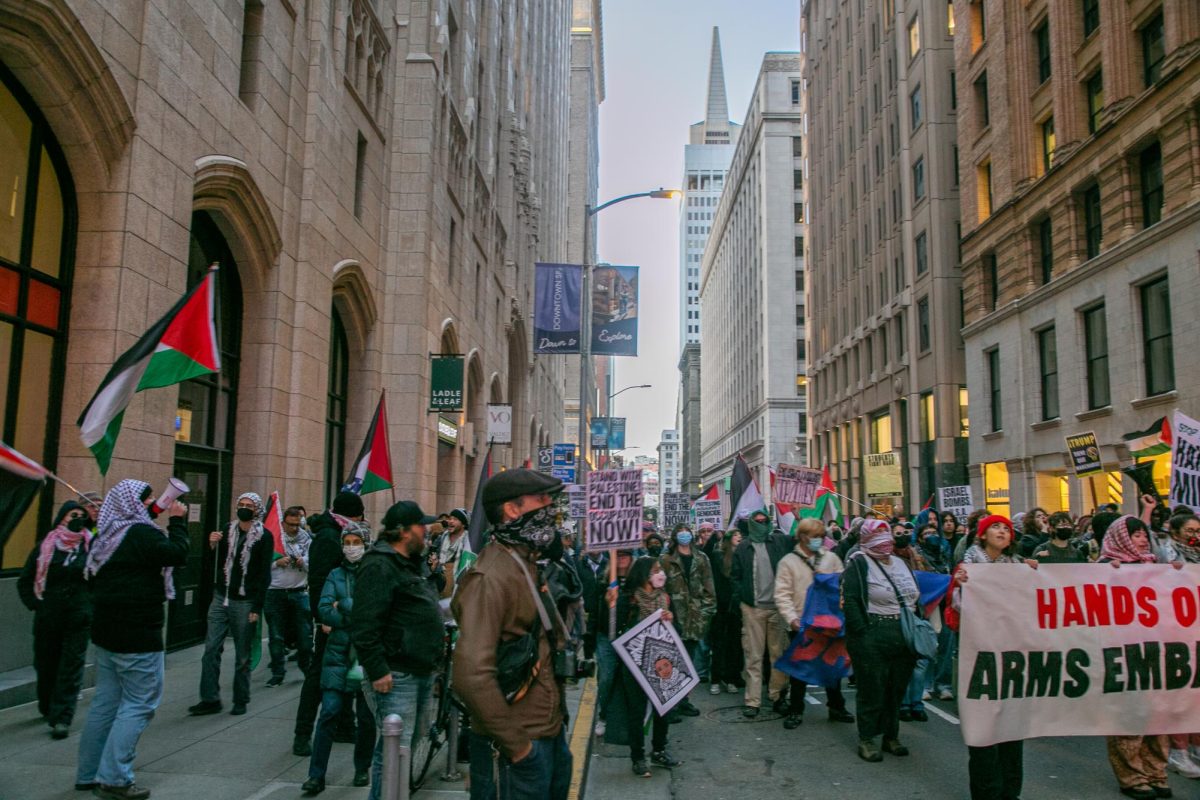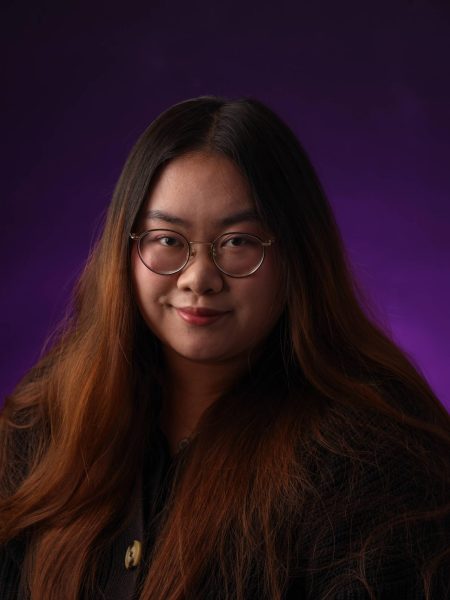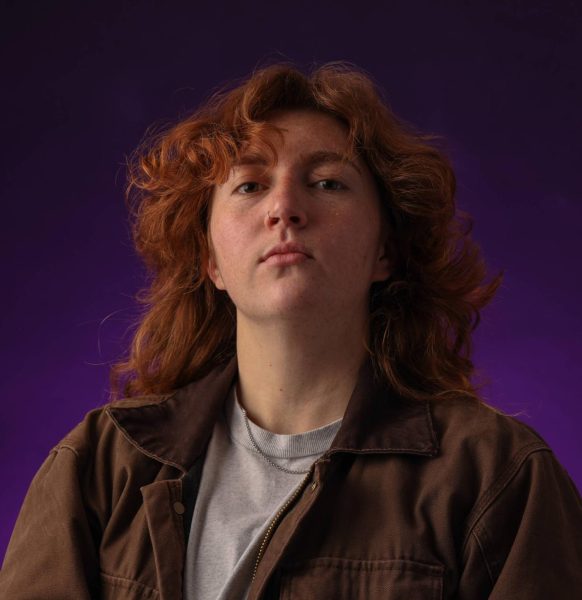On Wednesday evening, dozens of excited people filled every seat in the Commonwealth Club Taube Auditorium in downtown San Francisco to discuss politics. The attendees, who ranged from energetic teenagers to curious seniors, engaged in respectful and friendly conversations about the political setting following the November 2024 election.
The discussion and panel event, titled “Moving Forward Together: An Intergenerational Conversation,” was hosted by the Commonwealth Club World Affairs, a nonprofit public affairs forum. It was hosted as part of Creating Citizens, the nonprofit’s civic education initiative.

Participants were seated in groups of six and had at least one person with a name tag indicating they were under 25 years old. Once guests were sorted into groups with a diverse range of ages, moderator Nesreen Ezzeddine, education program manager at Commonwealth Club World Affairs, directed guests to discuss the two to three dialogue prompts on the projector.
One of the first dialogue prompts asked about participants’ concerns about the political state, to which David Leimsieder, a club board member, brought up the country’s debts and federal deficits.
“Because we’re basically mortgaging the future of America, and you kids are going to have to be the ones to help repay all that debt and that worries me a lot,” he said.
Mary Anne Brady, a volunteer with the Commonwealth Club, said she was concerned about disrespectful and hateful language used by people in the media.
“It discourages me a lot that younger people see and hear this and think it’s OK,” said Brady, referring to hateful rhetoric and speech. “Language is so effective and harsh on our ears.”
Other than conversations about politics, guests were prompted to share what perspectives they were interested in learning about from other generations.
Andrea Delman, a San Francisco State in University alum who graduated in 1975, said she attended the conversation because she wanted to hear from different people, particularly the younger people. One of the dialogue prompts asked what participants admired about another generation and Delman said, “the energy of young people showing up here.”
Further into the event, there was a “surprise” panel session — the stage was pre-set with chairs and microphones — shifting more into the civic engagement subject.
Civic engagement is defined as “working to make a difference in the civic life of one’s community and developing the combination of knowledge, skills, values and motivation to make that difference. It means promoting the quality of life in a community, through both political and non-political processes” by Youth.gov.
Panelists included Dr. Alice Siu, associate director at Stanford University’s Deliberative Democracy Lab, Duf Sundheim, a lawyer, and Dr. Sandra Bass, executive director of the UC Berkeley Public Service Center. The three panelists reflected on their takeaways and provided insight on increasing civic engagement.

“There is such a hunger in younger people to have relationships with elders,” said Dr. Bass. “All the young people are watching the adults.”
The dilemma that Dr. Bass discussed regarding intergenerational relationships was about transactional relationships. Many young people feel “abandoned” by their elders. She described the concept as, “‘what do I get out of this’ versus ‘what am I leaving behind for the next generation?’”
In order to bridge that divide, Dr. Bass said that what’s important is to build trust and empathy.”
Others like Zabrae Valentine, an engagement consultant, mentioned how events like these bring people together physically.
“We want to reach folks like people in this room who want to have these conversations. But when we all go it’s like when everyone’s here it feels so easy — here we are,” Valentine said. “But when everyone goes home, it’s really hard to find everyone… It’s really hard to connect with people today because everyone’s in their own silo.”
Dr. Siu, who is passionate about middle school and high school civic education, said that it was important to get people interested in civic participation in academia.
“If you have certain activities you want to push in your communities, go into the schools and serve and pitch to them what they can do,” Dr. Siu said. “I honestly think that working in schools is your best bang for your buck because students have to be in school and if you just have 30 minutes of their time, you can get across to them about what you can do as an individual.”
Similarly to what Dr. Siu said about civic opportunities in education, Sundheim said that his biggest contribution was mentoring one-on-one and that he believes there are two directions in civic engagement.
“One is structurally, you know, events like this, but I have also worked very hard with mentoring on an individual basis,” Sundheim said.
He shared how he mentored an aspiring administrator who was petrified to take the local exams and how she achieved her goals.
“So I think sometimes you can feel like this is so big, so impossible. But if you break it down to what you’re doing today with this individual person, a lot of times you’d be shocked at where they go and where they end up,” Sundheim said. “So it’s both working on the big picture and also really every day you interact with the individual and focusing on their goals and helping them achieve their goals.”
Valentine also gave advice for connecting with community members — “join community groups, go to city council meetings, find everyone in your immediate vicinity and organize something with them, solve a problem with them.”
Other than within communities, Valentine said civic participation starts at home.
“You can make a difference at home,” Valentine said. “Start turning the tide.”





